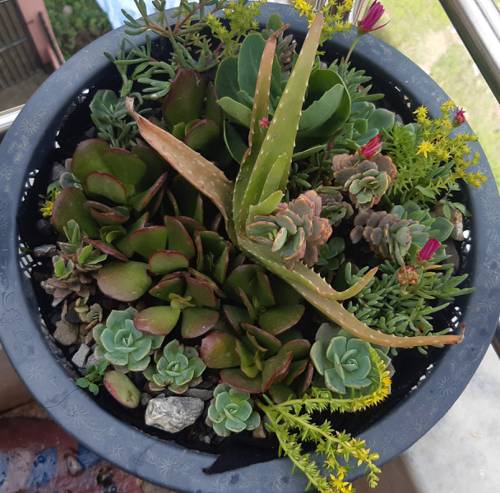
FAQ About Indoor Plant Scent Profiling

What is indoor plant scent profiling?
Indoor plant scent profiling involves analyzing the different fragrances emitted by indoor plants. It focuses on understanding how these scents can influence mood, memory, and relaxation. By studying scent profiles, people can select plants that not only enhance the aesthetic of their living spaces but also improve their well-being.

How do scent profiles of indoor plants affect mood?
Scent profiles of indoor plants can have a significant impact on mood. Aromas such as lavender and jasmine are known for their calming and mood-enhancing properties. The olfactory system, which processes smells, is closely linked to brain areas governing emotions, meaning certain smells can directly influence mood by triggering positive emotional responses.

Can indoor plant scents enhance memory?
Yes, certain indoor plant scents can enhance memory. For example, rosemary has been shown to improve concentration and memory retention. This is because specific compounds in the plant's oil can stimulate the brain, leading to improved cognitive functions.

Which indoor plants are known for their relaxing scents?
Lavender, jasmine, and chamomile are popular indoor plants known for their relaxing scents. Lavender is particularly effective in reducing stress and anxiety due to its soothing aroma, while jasmine's sweet scent can be relaxing as well.

Are there any health benefits from indoor plant scents?
Yes, indoor plant scents can offer several health benefits. They can reduce stress levels, improve mental clarity, enhance mood, and support relaxation. Additionally, some scents may have antibacterial and antiviral properties, contributing to a healthier indoor environment.

What indoor plant has a scent that boosts energy?
Eucalyptus is an indoor plant that is known to boost energy levels. Its strong, refreshing scent can help clear nasal congestion and invigorate the senses, leading to increased alertness and energy.

How do you maintain the scent of indoor plants?
To maintain the scent of indoor plants, ensure they are kept healthy by providing adequate sunlight, watering appropriately, and using suitable soil. Pruning the plants regularly can help them remain vibrant and aromatic. Additionally, keeping plants in a well-ventilated area can allow their scent to disperse effectively throughout the space.

What is the best way to choose an indoor plant based on scent?
The best way to choose an indoor plant based on scent is to identify your scent preferences and the desired effect (e.g., relaxation, energy boost). Visiting a nursery and smelling different plants can help. Also, consider factors like the plant's size, light requirement, and maintenance before making a choice.

Do all indoor plants have a scent?
No, not all indoor plants have a noticeable scent. Some plants are selected for their visual appeal or air-purifying qualities rather than their fragrance. If scent is a priority, it’s important to choose specific aromatic plants known for their fragrances.

How can indoor plant scents improve indoor air quality?
While the scents themselves don't purify air, many scented indoor plants have air-purifying properties. They can absorb toxins and pollutants through their leaves and roots, thus improving indoor air quality while also providing a pleasant aroma.

Are there any indoor plants with scents that help with sleep?
Yes, lavender and valerian are indoor plants with scents that can aid sleep. Lavender is well-known for its calming effects, which can help reduce anxiety and promote a restful night’s sleep. Valerian, often used in teas for sleep, has a fragrant herbaceous smell that can help relax the mind.

Can the scent of indoor plants trigger allergies?
Yes, while many people benefit from plant scents, they can potentially trigger allergies in sensitive individuals. It's important to introduce plants gradually and monitor any allergic reactions. Common symptoms could include sneezing, runny nose, or skin irritation.

Do indoor plant scents differ from outdoor plants?
Indoor plant scents can differ from outdoor plants primarily due to environmental factors such as sunlight, temperature, and humidity, which can affect scent intensity. However, the essential scent profile of the plant remains the same.

How do you enhance the scent of indoor plants naturally?
To enhance the scent of indoor plants naturally, ensure they are thriving by providing sufficient water, light, and nutrients. You can also gently rub the leaves or blooms of aromatic plants like lavender to release more of their scent into the air.

What role do essential oils play in indoor plant scent profiling?
Essential oils are concentrated plant extracts that capture the scent and beneficial properties of plants. In indoor plant scent profiling, they help identify the signature scents and the potential mental and physical benefits they provide, offering insights into which plants might be best for specific goals such as stress relief or memory enhancement.

Are there any indoor plants with a scent that repels insects?
Yes, certain indoor plants like citronella, peppermint, and eucalyptus have scents that naturally repel insects. These scents act as a natural deterrent to bugs, offering both aromatic benefits and pest control without the use of chemicals.

How does scent impact plant therapy?
Scent plays a pivotal role in plant therapy by influencing mood and emotions through aromatherapy. Plant scents can help alleviate stress, enhance relaxation, and improve productivity. Using scented plants in therapeutic settings can enhance overall healing and well-being.

Is there a seasonal variation in the scent of indoor plants?
Yes, there can be seasonal variations in the scent of indoor plants as factors like temperature and light change throughout the year. These variations can affect the intensity and dispersion of plant scents, potentially making them stronger in warmer months.

What are some common misconceptions about indoor plant scents?
A common misconception is that all indoor plants with pleasant scents require high maintenance. In reality, many aromatic indoor plants, like pothos or peace lilies, are low maintenance. Another misconception is that only flowering plants offer pleasing scents, while in fact many non-flowering plants also provide aromatic benefits.

How can you create a personalized scent profile for your home with indoor plants?
Creating a personalized scent profile involves selecting a variety of plants based on your scent preferences and desired ambiance. Mix plants with sweet, citrus, and herbal scents to create a balanced aromatic atmosphere. Consider the plant's compatibility with your home environment in terms of light and space and group plants that complement each other's scents for a harmonious blend.
